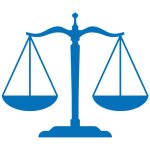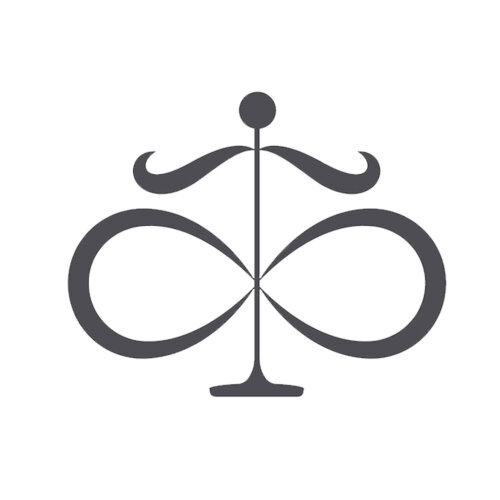Best Project Finance Lawyers in Dakar
Share your needs with us, get contacted by law firms.
Free. Takes 2 min.
List of the best lawyers in Dakar, Senegal
About Project Finance Law in Dakar, Senegal
Project finance in Dakar, Senegal, is a specialized area of law focused on structuring complex financial arrangements for large-scale projects, such as infrastructure development, energy plants, mining, transportation, and public-private partnerships. These projects typically require significant external funding and involve multiple stakeholders, including government entities, sponsors, lenders, and contractors. In Senegal, project finance law incorporates aspects of local legal frameworks and international best practices to ensure the successful execution and protection of all parties’ interests.
Why You May Need a Lawyer
There are several situations in which legal assistance is crucial in project finance matters in Dakar. These include:
- Drafting and negotiating financing agreements or contracts with local and international lenders
- Navigating complex regulatory requirements and obtaining government approvals or permits
- Addressing cross-border issues, including currency exchange and tax considerations
- Structuring deals to allocate risks appropriately between stakeholders
- Handling security interests and collateral arrangements
- Resolving disputes between parties related to financing, construction, or operation phases
- Advising on public-private partnership frameworks and concession agreements
Engaging a lawyer experienced in project finance helps ensure compliance with all relevant laws, reduces risks, and minimizes potential costly disputes.
Local Laws Overview
Project finance in Dakar operates under several local and regional legal frameworks. Some key aspects include:
- OHADA Law: Senegal is a member of the Organization for the Harmonization of Business Law in Africa (OHADA), which provides a unified legal framework governing commercial transactions, secured lending, and bankruptcy matters, relevant to project finance.
- Public-Private Partnership (PPP) Law: Senegal has specific regulations governing the formation and execution of public-private partnerships, which are frequently used for infrastructure projects.
- Environmental and Social Regulations: Projects must comply with environmental impact assessment requirements and social responsibility obligations under Senegalese law.
- Government Approvals: Large projects often require permits or concessions from relevant ministries and authorities, particularly in sectors such as energy, mining, or transport.
- Taxation: Tax incentives may be available for certain projects, but tax compliance is strictly enforced and project structures often require diligent planning.
- Security Interests: The process for registering and enforcing security interests (such as pledges or mortgages) is set by both domestic laws and OHADA regulations.
Frequently Asked Questions
What is project finance?
Project finance is a financial structure where a large project is funded based on the projected cash flows of the project itself, rather than a company’s general balance sheet. The project’s assets and revenues are used as collateral for the financing.
What types of projects are commonly financed in Dakar through project finance?
Common projects include energy generation (such as solar or wind plants), infrastructure (roads, bridges, ports), mining, telecommunications, and major real estate developments.
Who are the key parties involved in a project finance transaction?
Key parties typically include project sponsors (such as investors or developers), lenders (often banks or development finance institutions), government agencies, contractors, and sometimes multilateral organizations.
What are the common legal documents required for project finance?
Important documents include loan agreements, guarantees, security documentation (such as pledges or mortgages), concession or lease agreements, construction and operation contracts, and sometimes shareholder or joint venture agreements.
Does project finance law in Senegal follow international standards?
Senegalese project finance structures generally reflect international best practices and standards, adapted to comply with local and OHADA rules. International lenders often require compliance with global standards for transparency and risk allocation.
How is risk allocated in project finance deals in Dakar?
Legal advisors help structure contracts so that key risks (such as construction, operational, or political risks) are allocated to the parties best able to manage them, minimizing potential disputes and losses.
Are foreign investors allowed to participate in project finance in Senegal?
Yes, foreign investors are welcome in Senegal’s project finance sector. However, there may be local content requirements or regulations specific to foreign investment in certain sectors.
What are the main regulatory bodies involved in project finance matters?
Depending on the sector, key bodies include the Ministry of Economy, Ministry of Finance and Budget, Ministry of Petroleum and Energies, Ministry of Environment, and sector-specific regulatory agencies.
How long does it take to complete a project finance transaction in Dakar?
Timelines vary significantly based on project size and complexity. Simple transactions may take a few months, while complex infrastructure projects often require a year or more from negotiation to financial close.
What happens if a project fails or cannot repay its loans?
In case of default, lenders may enforce their security interests under Senegalese and OHADA law, which may involve taking ownership of project assets or triggering guarantees provided by sponsors or the government.
Additional Resources
For individuals seeking further information or support regarding project finance in Dakar, the following resources may be helpful:
- Ministry of Economy, Planning and Cooperation
- APIX - Senegal's National Investment Promotion Agency
- Senegalese Bar Association (Ordre des Avocats du Sénégal)
- OHADA Official Portal and Documentation
- Chamber of Commerce, Industry and Agriculture of Dakar
- Multilateral Investment Guarantee Agency (MIGA) offices in the region
Next Steps
If you are considering involvement in a project finance transaction or need legal advice in Dakar, Senegal, here are practical steps to follow:
- Document your project or legal needs clearly and gather all relevant materials
- Identify and contact a legal professional specialized in project finance or a law firm with this expertise in Dakar
- Consult with your lawyer about the specific legal, regulatory, and financial challenges your project may face
- Review funding options and potential partners with your legal advisor
- Work with your lawyer to prepare, negotiate, and finalize necessary contracts and agreements
- Ensure you comply with all local requirements and obtain necessary permits or approvals before project commencement
Early engagement with knowledgeable legal counsel helps prevent mistakes, protects your interests, and increases the likelihood of successful project completion.
Lawzana helps you find the best lawyers and law firms in Dakar through a curated and pre-screened list of qualified legal professionals. Our platform offers rankings and detailed profiles of attorneys and law firms, allowing you to compare based on practice areas, including Project Finance, experience, and client feedback.
Each profile includes a description of the firm's areas of practice, client reviews, team members and partners, year of establishment, spoken languages, office locations, contact information, social media presence, and any published articles or resources. Most firms on our platform speak English and are experienced in both local and international legal matters.
Get a quote from top-rated law firms in Dakar, Senegal — quickly, securely, and without unnecessary hassle.
Disclaimer:
The information provided on this page is for general informational purposes only and does not constitute legal advice. While we strive to ensure the accuracy and relevance of the content, legal information may change over time, and interpretations of the law can vary. You should always consult with a qualified legal professional for advice specific to your situation.
We disclaim all liability for actions taken or not taken based on the content of this page. If you believe any information is incorrect or outdated, please contact us, and we will review and update it where appropriate.









